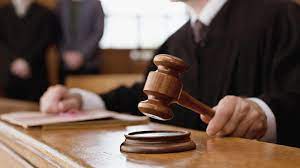The Role Of Eyewitness Testimony In Criminal Cases

An eyewitness is someone who has seen a crime or a related event firsthand. Their testimony can be valuable evidence in criminal cases.
Eyewitness accounts are subject to scrutiny, as memory can be fallible and biased. A leading criminal lawyer in Toronto would be well-versed in analyzing and challenging eyewitness testimony in court.
What’s The Role of Eyewitnesses In Criminal Cases?
Eyewitness testimony can be a crucial element in criminal cases in Canada. They provide valuable information to help determine guilt or innocence. Here are ten roles that eyewitnesses can play in criminal cases:
Identifying Suspects
Eyewitnesses may be the only people who can describe the suspect or suspects involved in a crime. This can help investigators to identify and track suspects down.
Providing Evidence
Eyewitnesses can provide valuable evidence that can be used to corroborate other evidence, such as physical evidence or testimony from other witnesses.
Testifying in Court
Eyewitnesses may be called upon to testify in court, providing their account of what they saw or heard during the crime.
Providing More Details
Eyewitnesses can provide important details about the crime, such as the location, time of day, and actions of the suspect(s), that can help investigators to build a case.
Corroborating Evidence
Eyewitnesses may be able to corroborate other evidence, such as CCTV footage or physical evidence, helping to strengthen the case against a suspect.
Disproving Alibis
Eyewitness testimony can be used to disprove alibis provided by suspects, helping to establish their guilt.
Explaining Motive
Eyewitnesses may be able to shed light on the motive behind a crime, helping investigators to understand the context of the crime and the actions of the suspect(s).
Identifying Accomplices
Eyewitnesses may be able to identify accomplices or co-conspirators involved in the crime. This helps investigators to build a case against multiple suspects.
Providing Emotional Impact
Eyewitness testimony can have a powerful emotional impact in court. It can help to humanize the crime and make it more relatable to jurors.
Providing Closure
Eyewitnesses may be able to provide closure to victims or their families. As a result, they can understand what happened and why, and bring a sense of resolution to the case.
Are Eyewitnesses Legally Protected?
Eyewitness protections ensure that the criminal justice system is fair and accurate. By providing witnesses with support and protection, we can increase the likelihood of obtaining accurate and reliable testimony, which can help to secure a just outcome for all involved.
Eyewitness testimony can be a crucial piece of evidence in a criminal trial, but it is also known to be notoriously unreliable. This is why there are protections in place to ensure eyewitnesses are treated fairly and their testimony is as accurate as possible.
One of the most important protections for eyewitnesses is the use of lineup procedures. These are typically conducted by police officers and involve presenting a suspect alongside other people who are not suspects.
The eyewitness is then asked to identify the person they believe committed the crime. To ensure accuracy, the following conditions are required:
- The lineup is conducted by someone who doesn’t know the suspect, and
- The other people in the lineup should resemble the suspect in some way — a similar age, race, and build.
Another important protection for eyewitnesses is the use of memory-enhancing techniques. These can include showing eyewitness photographs or videos of the crime scene or asking them to visualize the scene in their mind. This technique can help to jog the witness’s memory and provide more accurate testimony.
Eyewitnesses shouldn’t be coerced or pressured into providing testimony. This means that police officers or prosecutors should not threaten or intimidate witnesses, and should avoid leading questions that might influence their testimony.
In some cases, eyewitnesses may need to be given special protections due to their age, vulnerability, or involvement in the crime. For example, child witnesses may need to be interviewed in a child-friendly environment and with the help of a trained specialist. Witnesses who are victims of the crime may also need additional support, such as counseling or legal assistance.
Finally, eyewitness testimony must be presented fairly in court. This means that both the prosecution and the defense should have equal opportunities to question the witness and that any inconsistencies or doubts about their testimony should be explored.
Eyewitnesses play a critical role in criminal cases. They provide valuable information and evidence to help investigators and prosecutors build a case against suspects. While eyewitness testimony can be powerful, it is important to know that memories can be fallible and subject to bias.
Nonetheless, when used carefully and in conjunction with other evidence, eyewitness testimony can be a powerful tool in the pursuit of justice. A criminal defence lawyer can help.